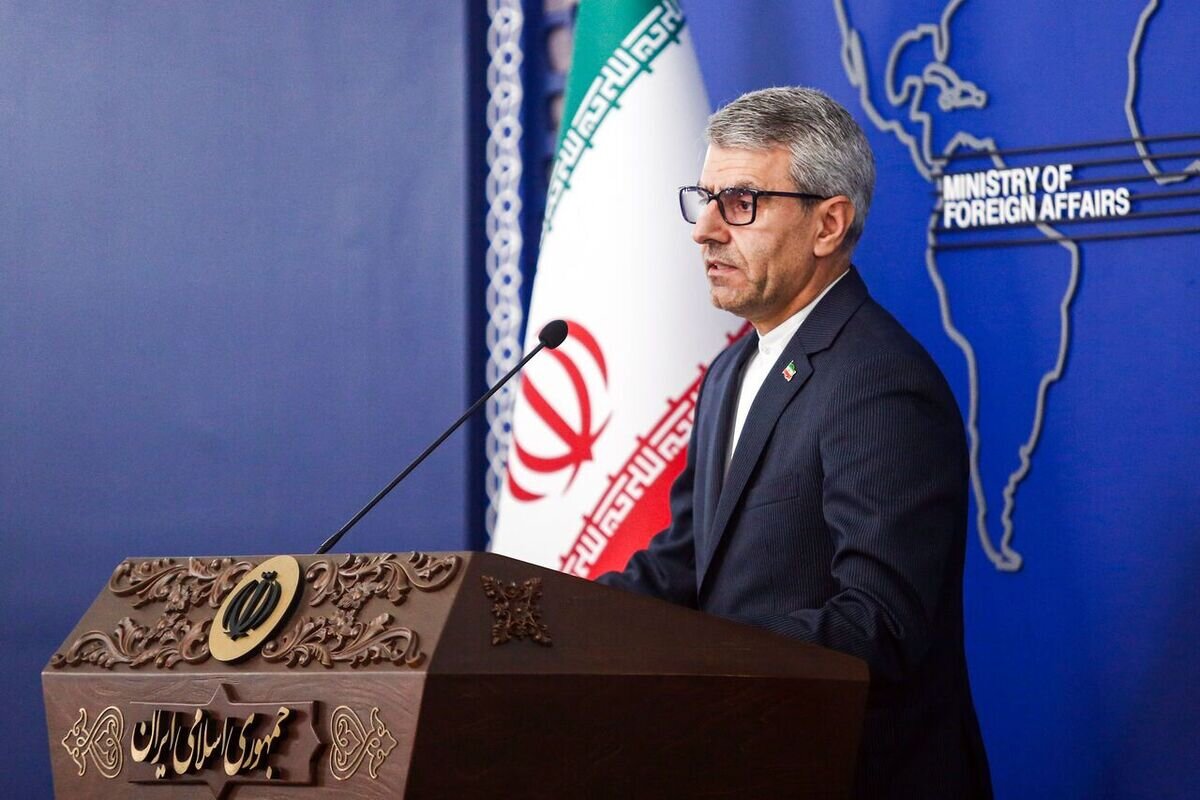Use of human shields by Israel violates Geneva Conventions: Iran Foreign Ministry

TEHRAN – Iran has sharply condemned Israel for using Palestinian civilians as human shields, calling it a “heinous war crime” and part of a broader campaign of genocide against the people of Gaza.
Citing reports from within Israel itself, the Iranian Foreign Ministry said the practice reflects a deliberate policy that violates international humanitarian law and must be prosecuted by international courts.
At his weekly press briefing on Monday, Foreign Ministry spokesman Esmaeil Baghaei said: “Unfortunately, this appears to be true, and it is not surprising given the ongoing crimes we’ve witnessed in recent years. This practice is part of Israel’s systematic policy of genocide.”
Baghaei emphasized that such actions are clearly banned under the Geneva Conventions and the Rome Statute of the International Criminal Court.
“The use of civilians as human shields is explicitly defined as a serious and heinous crime," he said. "It is the duty of the ICC, the OIC, and the UN Human Rights Council to document these crimes and pursue accountability in an international tribunal."
In a broader regional context, Baghaei condemned Israel’s ongoing military campaign in Gaza, criticizing the regime’s failure to uphold ceasefire commitments.
“It is disgraceful that not even a single truck of food has entered Gaza in recent months,” he said, calling on the international community to take action.
“Israel’s conduct clearly shows its goal is nothing short of the destruction of Palestine.”
Iran reaffirms red lines in nuclear talks
Parallel to its condemnation of Israeli military tactics, Iran reiterated its firm stance on nuclear negotiations with the United States, ruling out any interim deal and stressing that uranium enrichment remains a non-negotiable right under the Non-Proliferation Treaty.
Baghaei reiterated that uranium enrichment remains a red line for Iran and an essential part of its peaceful nuclear program under the Non-Proliferation Treaty (NPT).
"An interim agreement has never been on our agenda, and for this reason, it has not come up in this round of talks either," he said, referring to the fifth round of indirect talks held in Rome on Friday. The negotiations were led by Deputy Foreign Minister Abbas Araghchi on the Iranian side and U.S. envoy for West Asia affairs Steve Witkoff, with Omani Foreign Minister Badr Albusaidi acting as mediator.
"Enrichment is integral to our civilian nuclear program and falls within our legitimate rights. We will not retreat even slightly from this position," he asserted, emphasizing that Oman’s proposals have so far respected Iran’s red lines.
He also rejected suggestions that a regional nuclear consortium could replace Iran’s domestic enrichment, stating: "While we welcome regional cooperation on fuel production, it can never replace our national enrichment capability."
Foreign Minister Araghchi, speaking after the Rome talks, described the discussions as “one of the most professional” rounds to date and noted that both sides would take proposals back to their capitals for further consultation.
Iran to continue diplomatic engagement with Europe
Responding to recent comments by the U.S. President Donald Trump, Baghaei reiterated that Iran has never pursued nuclear weapons.
"If the U.S. goal is to prevent weaponization, that is achievable. But if the intention is to strip Iran of its NPT-guaranteed rights, then this process will not succeed," he said.
He added that Iran remains open to dialogue with European powers and accused Israel-affiliated media outlets of spreading disinformation to derail negotiations.
"Much of what is reported in foreign media is fabricated by sources affiliated with the Zionist regime, aiming to undermine both Iran-Europe and Iran-U.S. talks," Baghaei claimed.
"We have proven in recent weeks that we are not wasting time. Our approach has been serious, principled, and aimed at reaching a fair agreement."
Iran-Russia strategic treaty to be implemented soon
The Foreign Ministry spokesman, referring to the latest status of the Iran-Russia strategic partnership, stated: "The strategic partnership agreement has already been approved by the Duma, and we have also placed it on the agenda with urgency. It was ratified by the Iranian Parliament this week and sent to the Guardian Council. We hope the agreement will be implemented in the coming weeks."
Iran and Russia, as two close and strategic allies, have over the past years deepened relations in various fields, despite heavy Western sanctions.
Leave a Comment